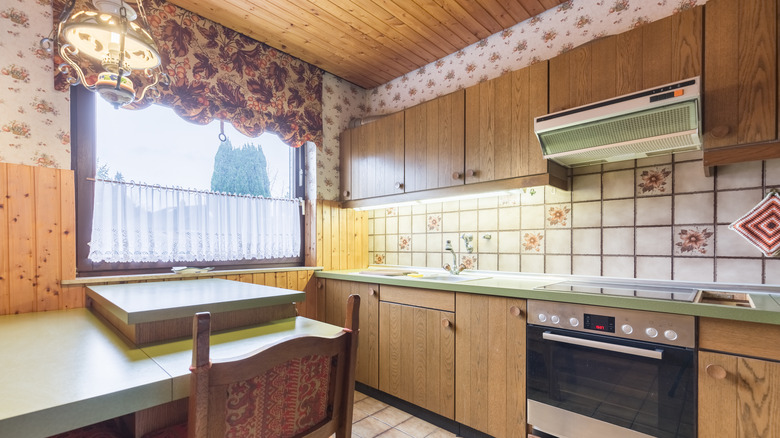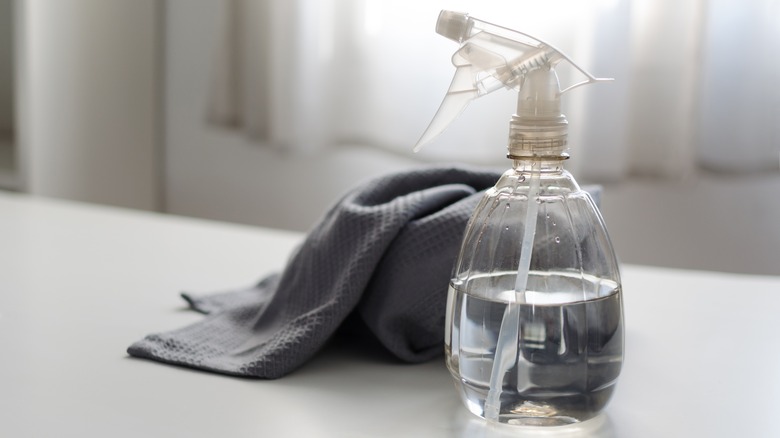How Vinegar Can Revive Your Space If You Have An Old House Smell
There are many potential reasons your house smells musty — but if your place is old and hasn't been renovated in a while, sometimes the smell seems to be baked into the house itself. Old house smell can be frustrating, embarrassing, and unpleasant. One helpful weapon in your arsenal is vinegar, which is effective at deep cleaning and deodorizing.
Old house smell can be caused by a number of things. Over time, houses accumulate years' worth of smells, particularly on porous materials, like wood and fabrics. These materials themselves also age and release odors. A lack of ventilation, combined with high humidity and potential hidden water leaks, can also contribute to the musty smell by encouraging mold and mildew growth. So in addition to the smell itself, old house smell can also indicate poor air quality. To fully get rid of the smell, you'll have to find and address the root cause. But as a common natural deodorizer, vinegar can also be a helpful tool.
Vinegar neutralizes bad odors
By deep cleaning and deodorizing your home, you can get rid of some of the potential sources of the old house smell. Vinegar is a cheap, natural, and effective ingredient for this purpose. It contains acetic acid, which breaks down grime and is a mild disinfectant. Acetic acid also neutralizes smells by bonding to the volatile molecules that odors are made of. While vinegar itself has a strong smell, it dissipates quickly.
You can use vinegar to clean and deodorize a wide range of surfaces in your home. Use it to wash your walls in a solution with hot water, Borax, and hydrogen peroxide. Dilute it with water and spray it on carpets or other musty surfaces to eliminate odors trapped in the material. As a whole-house deodorizer, vinegar can be simmered on the stove to vaporize the acetic acid into the air. A bowl of vinegar can also absorb odor in a room, though you may need to tackle the problem more directly for something as prevalent as an old house smell.
Keep in mind that it's not safe to use vinegar on hardwood floors or wood furniture. It can damage the finish, change the color, and cause swelling. Similarly, avoid using vinegar on natural stone, such as granite, as it may etch the surface and break down any sealers.
Banishing the old house smell for good
In addition to cleaning and deodorizing with vinegar, you'll need to take a few other steps to address the underlying causes of old house smell (otherwise, it may just keep coming back). First, increase air circulation and decrease humidity in your home. These can be a major contributor to musty smells. Open up windows, turn on fans, and run a dehumidifier or two.
Humidity and poor ventilation may have also contributed to mold or mildew growth. If you find mildew or mold in unexpected places in your home, you can try killing it with natural ingredients, including vinegar. But if the problem is significant, call a mold professional for help.
Similarly, old houses may have hidden leaks that can be a factor, creating damp, hidden pockets that produce a strong, stale odor. Old buildings may also have some old or damaged materials or dirty HVAC systems. Repair and replace any of these items as needed to thoroughly freshen the air in your home.


